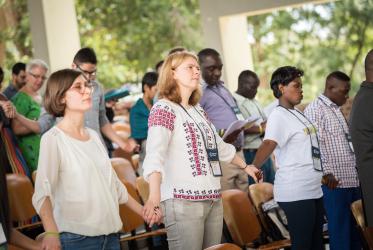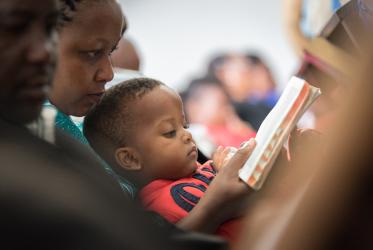The meeting’s purpose was to move toward a future educational alliance called the Global Compact on Education.
Sauca reflected that Jesus Christ himself provides a model for educators with his loving and healing presence. “We see an emphasis on education also at the heart of many other faith communities,” he said. “Calling not only on Christian traditions, but indeed on all living faiths to join in such an educational alliance is a timely and necessary step.”
Sauca also stressed the need to strengthen our shared commitment for building human relationships with dignity, solidarity, and the caring for creation.
“The seven commitments of the Global Compact on Education are very helpful signposts for the direction to go,” he said. “The seven commitments need to be seen together in their intersectionality.”
Education is a vital dimension of life in community, Sauca continued. "Governments must recognize the right of all children and young adults to an education that will equip them to participate as responsible adults in their societies and the one human family,” he said. “This requires holistic education supporting the development of the whole personality including the physical, intellectual, moral, social and spiritual dimensions and the recognition of cultural and religious diversity.”
Education also needs to encourage the dialogue of cultures and religions, he said. “Education today must integrate the social, economic and ecological perspectives of development,” he said. “Far too often, governments spend far too little money on education of children and young adults despite their obligation to sponsor education for all.”
Sauca expressed how ecumenical education and formation are close to his heart. “The WCC with its member churches and partners is ready to accompany the initiative for the Global Compact on Education,” he said.








